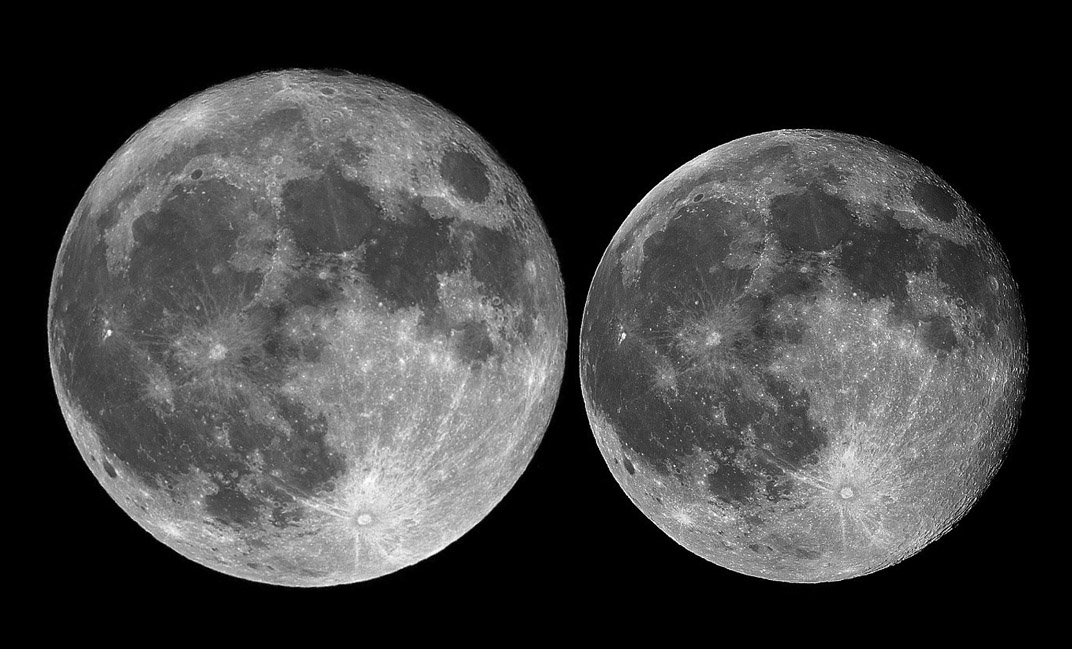Difference between revisions of "October 25, 2011"
| Line 1: | Line 1: | ||
__NOTOC__ | __NOTOC__ | ||
=Big & Little= | =Big & Little= | ||
| − | |||
<!-- ws:start:WikiTextHeadingRule:0:<h1> --> | <!-- ws:start:WikiTextHeadingRule:0:<h1> --> | ||
<!-- ws:start:WikiTextLocalImageRule:6:<img src="/file/view/LPOD-Oct25-11.jpg/268153208/LPOD-Oct25-11.jpg" alt="" title="" /> -->[[File:LPOD-Oct25-11.jpg|LPOD-Oct25-11.jpg]]<!-- ws:end:WikiTextLocalImageRule:6 --><br /> | <!-- ws:start:WikiTextLocalImageRule:6:<img src="/file/view/LPOD-Oct25-11.jpg/268153208/LPOD-Oct25-11.jpg" alt="" title="" /> -->[[File:LPOD-Oct25-11.jpg|LPOD-Oct25-11.jpg]]<!-- ws:end:WikiTextLocalImageRule:6 --><br /> | ||
| − | <em>image by [mailto:tolentino@fumec.br Ricardo José Vaz Tolentino], Brazil</em><br /> | + | <em>image by [mailto:tolentino@fumec.br" rel="nofollow Ricardo José Vaz Tolentino], Brazil</em><br /> |
<br /> | <br /> | ||
The Moon gets big and the Moon gets small, but it is surprising how large the variation is. Because we don't see two moons side by side we fail to notice the gradual changes in size. But the relatively large eccentricity of 5.5%, augmented by solar tides at full Moon, causes the Moon to swing though periodic changes in size like a binge dieter. Librations add another variable, so each big Moon, and small one too, is different. <br /> | The Moon gets big and the Moon gets small, but it is surprising how large the variation is. Because we don't see two moons side by side we fail to notice the gradual changes in size. But the relatively large eccentricity of 5.5%, augmented by solar tides at full Moon, causes the Moon to swing though periodic changes in size like a binge dieter. Librations add another variable, so each big Moon, and small one too, is different. <br /> | ||
<br /> | <br /> | ||
| − | <em>[mailto:tychocrater@yahoo.com Chuck Wood]</em><br /> | + | <em>[mailto:tychocrater@yahoo.com" rel="nofollow Chuck Wood]</em><br /> |
<br /> | <br /> | ||
<strong>Technical Details</strong><br /> | <strong>Technical Details</strong><br /> | ||
Revision as of 22:23, 4 January 2015
Big & Little

image by " rel="nofollow Ricardo José Vaz Tolentino, Brazil
The Moon gets big and the Moon gets small, but it is surprising how large the variation is. Because we don't see two moons side by side we fail to notice the gradual changes in size. But the relatively large eccentricity of 5.5%, augmented by solar tides at full Moon, causes the Moon to swing though periodic changes in size like a binge dieter. Librations add another variable, so each big Moon, and small one too, is different.
" rel="nofollow Chuck Wood
Technical Details
Perigee (03/19/2011; 23:39 UT), and the Moon about 17 hours after the Apogee (10/13/2011; 05:14 UT - about 27 hours after Full phase.



